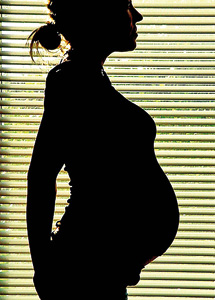In most cultures around the world pregnancy is considered an exciting and important milestone in a woman’s life. Therefore a diagnosis of infertility can have a profound impact on the woman. From a psychological perspective it is important to understand that the emotional reactions associated with such a diagnosis can be so intense that the woman may go through the psychological stages of grief.
A woman may initially react with shock, disbelief and denial. The denial can be maladaptive if she refuses to seek medical treatment with which she has a chance of conceiving. At this stage the physician as well as the family must allow her to express her emotions and reassure her that she will not be left alone.
 |
| Pregnancy is considered an important milestone
in a woman's life |
During the period of evaluation and treatment the woman may become frustrated and experience intense anger. She may wonder why this has happened to her and may displace her anger towards her spouse, friends and family members or onto the physician. She may even blame God. Family members and the physicians treating her must understand that anger is a mere expression of psychological distress and shouldn’t be taken personally. An empathetic response can help the woman refocus her own feelings of sadness.
A woman in this situation may try to alter her plight by becoming religious or taking vows declaring that if she could get pregnant even once, she would become the perfect mother and never ask for anything more from life. This is a common psychological reaction which will eventually fade away with the gradual realization and acceptance of the situation.
With the realization that the diagnosis is accurate, sadness and grief sets in. The woman suffering from infertility may show signs of depression such as agitation, sleep disturbances, feelings of worthlessness, hopelessness and may not be able to fulfil her responsibilities at home or at work. Talking to a mental health professional will help the woman deal with such feelings.
At the next point the woman will acknowledge the condition and may look forward to handling the situation in a more productive way. This can range from seeking medical assistance to adopting a child. Sometimes the couple may decide to remain childless, accepting the fact that even medical technology cannot reverse the situation. This acceptance can pave the way to an end to the painful and emotionally draining experience.
Single women who are aware of their infertility may be inhibited from committing to marriage for fear of rejection. These women should focus attention on other generative aspects of life which can fill the gap.
Infertility can negatively influence the dynamics of a marital relationship.
The cost, complexity, invasiveness and uncertainty associated with the treatment of infertility can be overwhelming for the couple. Infertility can give rise to emotionally devastating experiences such as marital disharmony, problems of intimacy and sexual relations or even divorce.
These problems can be eliminated by looking after each other’s emotional needs while catering to the primary goal of having a baby. The partner with the problem may also feel guilty about depriving the other’s dream of becoming a parent. Marital relationships can be also strained if the couple is not on the same page about the extent to which they should work towards having a child. Regardless of who suffers from infertility, the couple should participate in the evaluation and treatment process which will serve as an emotional support system for the person with the problem.
The stress associated with infertility and fertility treatment can be devastating. Clinical research has provided the insight that the stress levels associated with impaired fertility can negatively interfere with the endocrine system of the body and hinder the treatment outcomes by affecting ovulation or ejaculation. Therefore supporting and caring for each other’s psychological needs plays a crucial role.
Additional professional support such as counselling, psychotherapy and relaxation therapies can serve as means by which individuals can combat the psychological challenges of infertility. Acceptance, understanding and love will be the best psychological therapy a woman could receive.
(The writer is a
Clinical Psychologist) |
